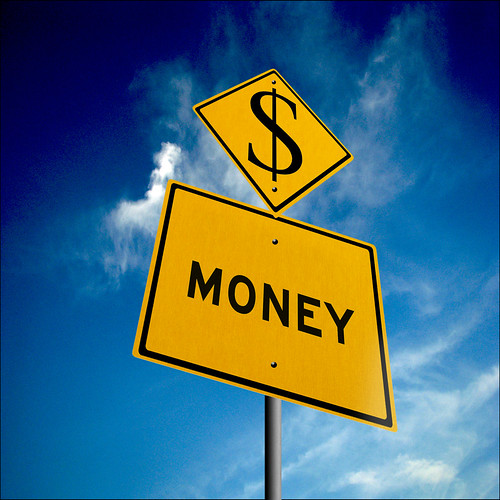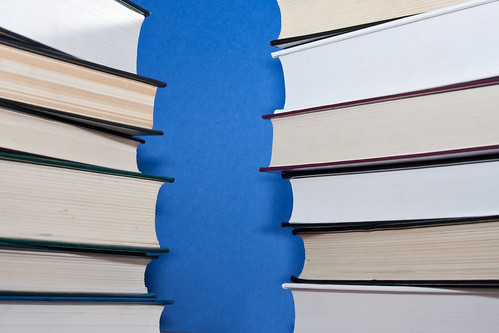Even after you learn how to master grammar, punctuation and descriptive language, the self-publishing journey is far from over. You've still got to figure out how to make money as an indie author -- and trust me, it's not easy.
The Road to Self-Publishing Success is Paved with Broken Indies
You may have an amazing book on your hands, a story so pure and so good it absolutely deserves to be a bestseller. But there are thousands of writers just like you, people who have created truly exceptional work, and we may never learn their names. After you write the book, format the book and self-publish the book, you've got all the easy stuff out of the way. You were born to write stories, weave plots and entertain the masses -- so of course you wrote the book. Actually promoting the damn thing, now that's hard.
And it's where lots of indie authors fail. Too many writers have a dream that they're going to write a book, publish that book and then, magically, the universe will respond. Yes, it has happened once or twice -- but lightning may not strike you just because it struck a few lucky others. Most of us have to create our own lightning; you can't even wait for the sky to get cloudy before you've got to get out there with your key and your kite (Benjamin Franklin reference). You cannot wait for the universe to discover your book. Under almost all circumstances, you aren't going to self-publish a book and have a bestseller on your hands a few weeks later.
Making Money as a Self-Published Author
It's much more likely that you'll publish a book, get a few purchases from friends and family members, and then nothing will happen. That's why you've got to promote to make something happen.
- Price. Set a reasonable price for your self-published book. Like it or not, indies have a bit of a tarnished reputation. Your book might be even better than the leading bestsellers being churned out by the top publishing houses, but no one is going to find out if you've priced your work as high as theirs. Self-published books are priced lower; that's your market. Stay competitive in your market. Once you've established yourself and you've got a lot of fans and you actually are making money, then you can re-visit the issue of price.
- Get reviews. Selling books is a pretty simple formula: readers like what other readers like. The more reviews your book has, the more interest it's going to generate. I live by a personal philosophy that there's no such thing as bad press. Even if you have nothing but 1-star reviews, that can be an asset. People like what's good, but they're fascinated by what's bad. Take a look at reality TV, and you'll see what I mean. If people are passionately screaming that your book is terrible, it can be a good thing. Remember that Mark Twain's books still get burned in great big piles, and the more controversial Catcher in the Rye gets the more people run out to buy it. Don't be afraid of reviews; chase after them like it's your only job.
- Toot your horn. You can be however you want to be when you're at home, surrounded by friends and family. I happen to like shy, self-effacing types. But when you're in indie author mode, you are the greatest author ever. Your book is the greatest book ever written. Anyone who doesn't read this book is missing out on the experience of a lifetime. You are the best. Put yourself in that mindset, and start tooting your own horn. Get on Twitter and Facebook and everything else and post your links, show off your good reviews, offer up snippets of your sensational writing. Your agenda is to sell books, so get out there on social media and start selling them. There's a lot of talk about finding a good balance for promoting oneself, and it's valid to assume you shouldn't be running self-promoting ads every other minute on Twitter. But if you're doing it once or twice an hour, that's not too much at all.
- Sell, sell, sell. If you really want to sell books, you'll start selling them everywhere. Get on Amazon, B&N, Smashwords and every other selling site you can find (as long as it's free; see the next point). Plaster links where people can buy these books everywhere. Put them on your blog, your social media profiles, in your email signature, in your forums signatures, and anywhere else I might have missed.
- Don't spend. If you want to make money selling your self-published books, don't start off in debt. Do as much of the work on the book yourself as possible. Do your own formatting, a good portion of your own editing, make your own trailer and, if you can, design your own cover. Before you purchase anything, like a cover or editing services, do some shopping around first to make sure you're getting a good price and a good product. Spend as little as possible, and only on the essentials you've got to have (like the copyright).
- Write more books. Legitimize yourself by continuing to write and self-publish. Amanda Hocking didn't come to the self-publishing party with one book that suddenly became popular; she published 9 books very quickly. The more books you have, the more legitimate you look as an author. Readers will take you more seriously when you have more books out there, but don't ever fail to make each one exceptional. Make sure they're well-edited, beautifully formatted and all that other stuff I won't stop blogging about.
And here's the most important step of all: keep doing all of that stuff. When you're an indie author, self-promotion is constant and it's every single day. Re-arrange your schedule and re-organize your life, if necessary, to give yourself time every single day to promote your books, your links and yourself as an author. You should tweet daily, Facebook daily, offer up something new on your blog daily whenever possible.
Find a balance, and make sure you continue putting your family and your needs first. Take care of your job and continue doing good work there, because in the interim you still need money from somewhere. But when you're not working and seeing to your other responsibilities, you'd better be out there promoting. Otherwise, making money as an indie author is a dream you may never quite reach. The secret ingredient to success, in any field, is tenacity. Be stubborn, be hard-headed, be unable to hear the word no, and you've got a good shot at reaching your self-publishing goals.

























